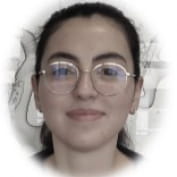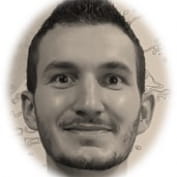The team "Insulin Resistance in Obesity and Type 2 Diabetes" aims to identify cellular and molecular mechanisms that link the pathological remodelling and dysfunction of adipose tissue in obesity to the development of insulin resistance, a central metabolic abnormality in the pathogenesis of type 2 diabetes and metabolic syndrome. By combining multidisciplinary approaches, our research is organized in three highly integrated core programs: 1) the identification of how metabolic stresses contribute to adipose tissue dysfunction and insulin resistance; 2) the study of the impact of altered endosomal trafficking on metabolic dysfunction and insulin resistance in adipose tissue and the liver; and 3) the identification of novel signalling pathways which could mitigate the pathological expansion of adipose tissue. For this translational research, we combine studies of mouse and human cell models as well as mouse models of these pathologies. In these different models, we study the changes in carbohydrate and lipid metabolism as well as the alterations in insulin action and signalling. We use innovative 3D imaging approaches on adipose tissue to quantify morphological and cellular changes, and in collaboration with mathematicians we establish mathematical models to model adipose tissue expansion under physiological and pathological conditions. Our research has contributed to significant advances in the identification of new mechanisms involved in insulin resistance, allowing us to propose new targets to fight insulin resistance and decrease the risk of developing type 2 diabetes.

Projects

M. CormontResearch Director
Mail Mireille.Cormont@univ-cotedazur.fr

JF. TantiResearch Director
Mail jean-francois.tanti@univ-cotedazur.fr

J. JagerResearcher
Mail Jennifer.Jager@univ-cotedazur.fr

S. Giorgetti-PeraldiResearcher
Mail sophie.giorgetti-peraldi@univ-cotedazur.fr

N. BouletLecturer
Mail Nathalie.BOULET@univ-cotedazur.fr
Chronic activation of stress-responsive pathways by persistent nutrient overload contributes to the maladaptive responses involved in adipose tissue dysfunction and the development of insulin resistance. Therefore, stress-responsive proteins could be attractive targets against insulin resistance induced by obesity. We have shown that different stress-responsive proteins (p53, REDD1) are induced in adipocytes during obesity, in response to genotoxic stress or hypoxia, and mediate alterations in insulin signalling pathways and in their metabolic and secretory functions (Vergoni B et al, Diabetes 2016, Regazzetti C et al, PLoS One 2012). The objective of this project is to improve our knowledge of the connection between the activation of these stress-responsive proteins and adipose tissue dysfunction and insulin resistance. We are deciphering their mode of action and mechanisms of activation in adipocytes and adipose macrophages, and we are evaluating whether their inhibition can prevent obesity and insulin resistance.

I. MucelPhD student
Mail ines.mucel@etu.univ-cotedazur.fr

R. ClaryPhD student
Mail raphaelle.clary@etu.univ-cotedazur.fr

I. MamjoudPhD student
Mail Iman.Mamjoud@etu.univ-cotedazur.fr

M. CormontResearch Director
Mail Mireille.Cormont@univ-cotedazur.fr

JF. TantiResearch Director
Mail jean-francois.tanti@univ-cotedazur.fr

J. GILLERONResearcher
Mail jerome.gilleron@univ-cotedazur.fr
Our team made the original demonstration that the Rab GTPase Rab4, which is involved in endosomal trafficking, controls glucose transport in adipocytes through the regulation of the translocation of the glucose transporter Glut4 in response to insulin (Cormont et al, Mol Cell Biol 1996; Kaddai et al, PloS One 2009). More recently, we have shown that dysregulation of Rab4b-dependent endocytic trafficking in adipose T cells is a new mechanism involved in adipose tissue dysfunction and insulin resistance development (Gilleron et al, Cell Reports 2018). Also, it was demonstrated that Rab-dependent endocytosis controls liver metabolism (Gilleron J et al, Traffic 2019) and our recent data identify several proteins of the Rab family whose expression in liver is modified depending on the nutritional state. The objective of this project is to improve our knowledge of the role of Rab proteins and their regulators in the control of glucose and lipid metabolism and insulin sensitivity. We are currently exploring if and how Rab proteins tune the metabolism of glucose and lipids and the energetic metabolism in adipocytes, T cells, and hepatocytes. We are also elucidating the role of these novel potential metabolic regulators in the development of insulin resistance.

A. ChafikPhD student
Mail abderrahman.chafik@etu.univ-cotedazur.fr

JF. TantiResearch Director
Mail jean-francois.tanti@univ-cotedazur.fr

M. CormontResearch Director
Mail Mireille.Cormont@univ-cotedazur.fr

JF. LouetResearcher
Mail Jean-Francois.LOUET@univ-cotedazur.fr
In obesity, the excess calory intake triggers an excessive development of fat mass by promoting hyperplasia and hypertrophy of white adipocytes. Conversely, the mass and activity of thermogenic adipocytes localized in white adipose tissue, called beige or brite adipocytes, is reduced. Stimulating beige adipocyte formation/activity protects against obesity and related metabolic disorders. The objective of this project is to identify new regulators of the beiging adaptation of the white adipose tissue. We are currently studying the central role of transcriptional coactivator in the genetic program controlled by sex hormones during beiging adaptation of white adipose tissue and the functional role of mechanosensitive ion channels in the differentiation and activity of the thermogenic beige adipocytes.

B. AngotPhD student
Mail brice.angot@univ-cotedazur.fr

A. ZeddaAssistant engineer
Mail alycia.zedda@etu.univ-cotedazur.fr
Publications
Focus
Rab4b Deficiency in T Cells Promotes Adipose Treg/Th17 Imbalance, Adipose Tissue Dysfunction, and Insulin Resistance.Authors Gilleron J, Bouget G, Ivanov S, Meziat C, Ceppo F, Vergoni B, Djedaini M, Soprani A, Dumas K, Jacquel A, Yvan-Charvet L, Venteclef N, Tanti JF, Cormont M
Cell reports Dec 2018
DNA Damage and the Activation of the p53 Pathway Mediate Alterations in Metabolic and Secretory Functions of Adipocytes.Authors Vergoni B, Cornejo PJ, Gilleron J, Djedaini M, Ceppo F, Jacquel A, Bouget G, Ginet C, Gonzalez T, Maillet J, Dhennin V, Verbanck M, Auberger P, Froguel P, Tanti JF, Cormont M
Diabetes Oct 2016
Other recent publications
Bax Inhibitor-1 preserves pancreatic β-cell proteostasis by limiting proinsulin misfolding and programmed cell death.Authors Blanc M, Habbouche L, Xiao P, Lebeaupin C, Janona M, Vaillant N, Irondelle M, Gilleron J, Murcy F, Rousseau D, Luci C, Barouillet T, Marchetti S, Lacas-Gervais S, Yvan-Charvet L, Gual P, Cardozo AK, Bailly-Maitre B
Cell death & disease May 2024
Golgi-associated retrograde protein (GARP) complex-dependent endosomes to trans Golgi network retrograde trafficking is controlled by Rab4b.Authors Gilleron J, Chafik A, Lacas-Gervais S, Tanti JF, Cormont M
Cellular & molecular biology letters Apr 2024
Adipocyte glucocorticoid receptor activation with high glucocorticoid doses impairs healthy adipose tissue expansion by repressing angiogenesis.Authors Vali A, Dalle H, Loubaresse A, Gilleron J, Havis E, Garcia M, Beaupère C, Denis C, Roblot N, Poussin K, Ledent T, Bouillet B, Cormont M, Tanti JF, Capeau J, Vatier C, Fève B, Grosfeld A, Moldes M
Diabetes Nov 2023
Show all publicationsPatents
Co-inventors J. Tanti, S Dalle; E Varin; A Wojtusciszyn
Team activities
- Congratulations to Jérôme, Mireille, and Jean-François for their involvement in the publication of Vali A et al., which has just been selected as the 'paper of the month' in the Diabetes journal and will be featured on the cover, thanks to the magnificent images by Jérôme
- Welcome to Lorlana Leporati and Lucie Le Parc, students in M1 of the Master Life Sciences UCA, who are doing their internship from February 1 to June 30, 2023 under the supervision of Jennifer Jager and Jerome Gilleron
- Organization of the annual AFERO scientific meeting from January 27 to 28, 2022.
- Welcome to Raphaël Di Vita, a student in M1 of the Master in "Life Sciences" at Université Côte d'Azur, who is doing his internship from February 1 to June 30, 2022 under the supervision of Jerome Gilleron.
- Participation of the team in the annual congress of the Société Francophone du Diabète which took place in Nice from March 22 to 25, 2022.
Scientific meetings
Franco-Indian Campus
In delegation with Professor Laurent Counillon and Dr. Mathieu Jozwiack, Dr. Jérôme Gilleron represented the University of Côte d'Azur at the "Indo-French Campus" workshop organized by the French Institute in India and the French Ministry of Foreign Affairs on Thursday, November 23, 2023 at the IIT Delhi center (India). This strategic reflection workshop on the evolution of the "Franco-Indian Campus," organized in the presence of Mr. Laurent Toulouse (Deputy Director of Higher Education and Research, Directorate of Culture, Education, Research and Network of the Ministry of Europe and Foreign Affairs of France), Ambassador Thierry Mathou (French Ambassador to India), Dr. Shahaj Uddin Ahmed (Department of Biotechnology, Ministry of Science and Technology of India), Dr. François-Xavier Mortreuil (Attaché for Science and Academic Cooperation at the French Embassy in India), and Dr. Fabien Chareix and Didier Raboisson (Attaché for Scientific and Academic Cooperation, French Institute in India), highlighted the significant progress of the University of Côte d'Azur in developing the project approved by the "Franco-Indian Campus"

CSI (Crime Scene Investigation) at C3M
Monday, February 12, 2024, researchers from the C3M welcomed two classes of third graders from Raoul Dufy College in Nice.
This day was organized in partnership with the school team (Mrs. Bost and Mrs. Hebrard). During this day, the students discovered the careers in research, and they conducted experiments to obtain clues for their pedagogical project.












